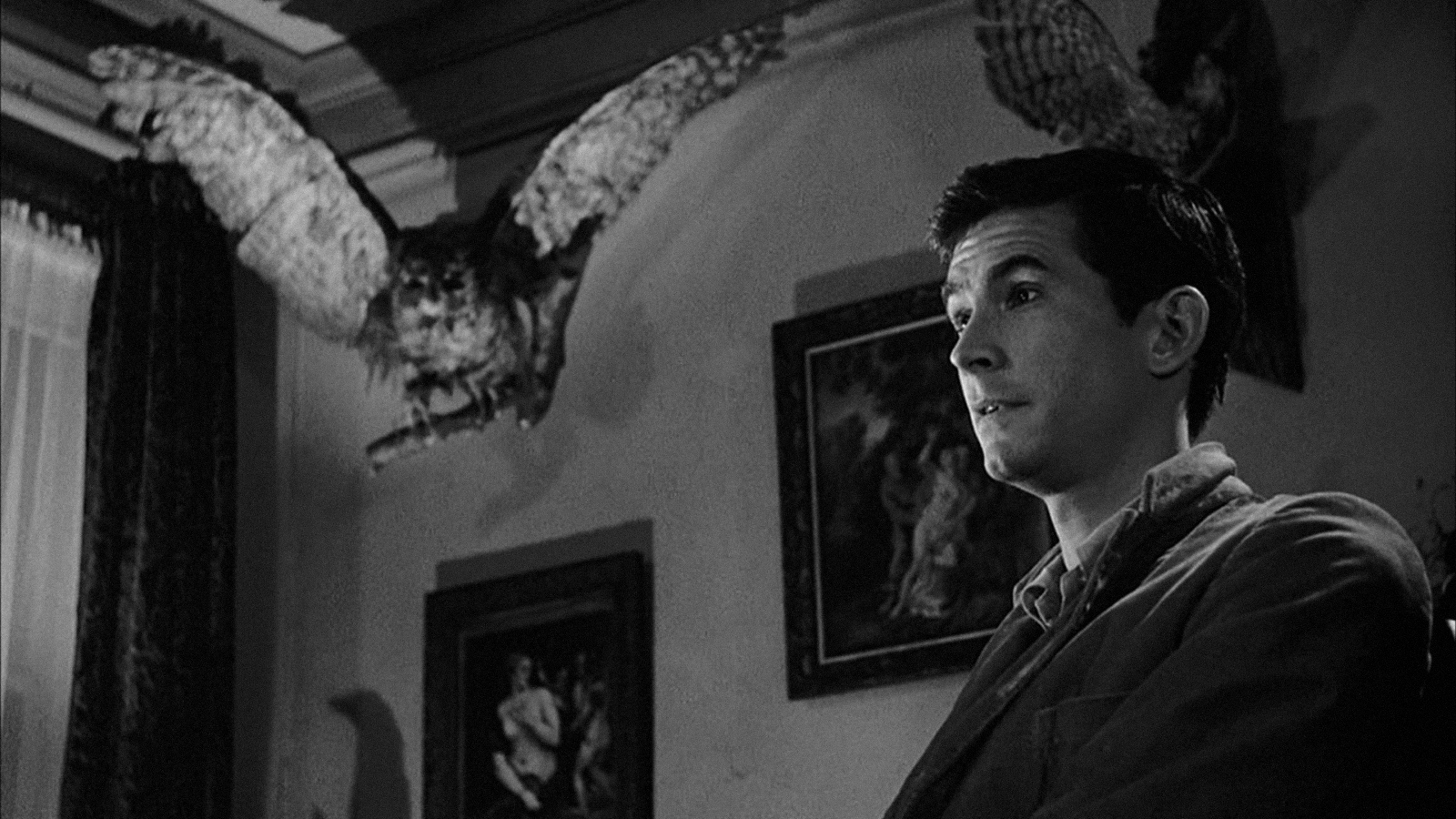Generic [SPOILER ALERT], major spoilers coming…
Alfred Hitchcock is the Master of Suspense, for all time. Just LOOK at his resume: Dial M for Murder, North by Northwest, Rear Window, Vertigo, Strangers on a Train; all of those movies contain amazingly scary tense sequences that have you gripping something, hoping something bad doesn’t happen. Psycho came out after all of these films, and is Hitchcock’s piece de resistance, combining the directors suspense with some of the great story choices in movie history.
Marion Crane (Janet Leigh) desperately wants to marry her boyfriend Sam Loomis (John Gavin). Feeling like she’s out of options, Marion steals $40,000 from her job and goes on the run in an ill fated attempt at happily ever after. Sam and Marion’s sister Lila (Vera Miles) get worried about Marion’s whereabouts, so they hire a private detective, Arborgast (Martin Balsam) to find out where Marion went. Marion ends up off highway at the overlooked Bates Motel, run by Norman Bates (Anthony Perkins), a mild mannered man who is excited to have someone finally stay at his motel.
Psycho pulls off one of the great story shifts in movie history. For the first hour we get introduced to Marion and the personal stuff she is going through. By the time she reaches the Bates Motel, Norman Bates is another person she meets in her path to character resolution. And then she’s….dead. At the hour mark! The main character is gone, and the audience is left to follow this different person with weird stuff going on with him, changing the story into this mystery about who Norman Bates is, and what’s up with his mother. You realize that the Marion setup drives the rest Joseph Stefano’s screenplay, as people try to understand what happened to her, when then in turn reveals more about the mystery surrounding the Bates family.
The Master of Suspense is in peak form in Psycho. Everyone brings their A game. The first hour leaves us tense from Janet Leigh’s fright at her crime and Bernard Hermann’s legendary score. By the time we get to the Bates Motel, we’re on edge with Marion and kind of unsure what to do. Enter Norman Bates, and the superb performance from Anthony Perkins. Perkins’s role is so hard, in that conversation with Marion, he has to convince everyone he’s meek and nice, but might carry some underwritten menace to make people feel uncomfortable despite his demeanor. So even though Marion feels better, Hitchcock has lulled us into a temporary calm before one of the 10 greatest scenes in movie history: the shower scene. This scene is so good that there’s an entire movie about it! The build of that scene is stunning: Marion is calmly cleaning herself, and we silently see the door open(!) and a mysterious figure starts slowly walking toward the unaware lead character. The silence agonizes you, but then you shriek with the shrieking violins and the faceless knifed mother stabbing Marion makes you gasp in horror, and Hitchcock has you. The director then builds more mystery and takes more lives around Norman that you realize this guy is clearly hiding his dangerous mother. Again, Hitchcock has lulled you, thinking you couldn’t be shocked as much as the shower scene, but when Vera Miles descends into the Bates’ cellar and we finally learn who the mother is via the dangling shadowy light bulb, shocking us again. But the demented director still isn’t done. Hitchcock, rightly so, believes in leaving the audience uneasy, and that final slow tracking shot of Perkins and his inner monologue is simply…frightening, and unforgettable.
There’s an easy way to see why Psycho is great. Pieces of its greatness can be seen in other movies generations later. Halloween uses simple music, the name Sam Loomis, and slow moving suspense to homage the movie. Scream kills its main character in the first 15 minutes, and actively mentions one of Psycho’s most famous lines. Those two movies are considered classics, mostly because of those exact moments. So the movie that started it all deserves all the credit for creating moments in other classic films that people love. Alfred Hitchcock also gets credit for flushing a toilet onscreen, just unheard of at the time, breaking the taboo for countless horror killers to use the toilet as a killing device.

